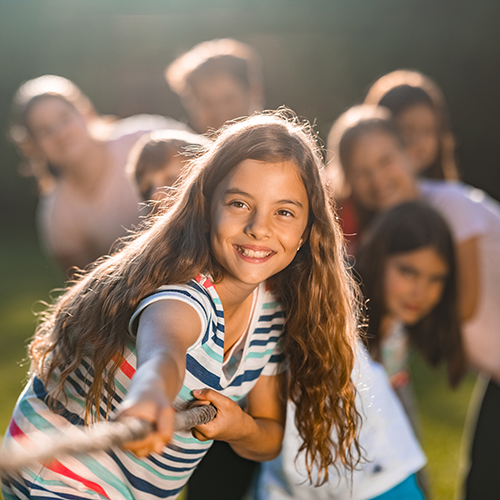04 June 2024
The summer holiday break is often considered a time of fun and relaxation for school children, but hand in hand with a respite from routine comes an increase in sedentary behaviour and screen time, and in turn, poorer health and academic outcomes.
University of South Australia researchers have conducted the first ever review of studies of 14 million school children and what happens to their academic performance, and physical and mental health, over the summer break.
Published in international journal Children, the paper found that children (aged five-18) were spending more time inside on devices during the summer holidays, which was contributing measurably to a decline in their physical health, including poorer fitness and unhealthy increases in body weight.
Specifically, the study found that a break from the academic structure of the school day led to a decrease in numeracy skills with many children regressing in their learning – approximately 71% of reviewed papers that investigated numeracy skills found significant learning regression.
UniSA researcher and Fulbright Scholarship recipient Emily Eglitis says interventions are needed to offset this ‘summer slide’ and improve children’s health and academic outcomes.
“During the summer holidays, it’s normal for school children to become less active, eat more junk food, and spend more time on screens, and it’s important for them to get some proper down time – but what we’ve noticed is that these behaviours are prevalent enough to have significant negative health impacts,” Eglitis says.
“This is especially true for disadvantaged children who experience acute health and academic declines during school breaks.
“We also know that most health interventions are delivered during school – things like physical and health education. But because the summer holidays are a prime time for children to detach from routines, we need alternatives to offer parents so they can help keep their children mentally and physically active.
“Some of the options are overnight or day camps, or designated and monitored public play areas, because maintaining structure and activity is key to keeping children healthy and happy.
“These kinds of activities are already on offer, but there’s little evidence to show what physical impact they have on children’s health.
“By looking at the effectiveness of summer programs we can assess how effective they are at mitigating health issues and improving the health and wellbeing of children during the holidays.”
UniSA Director of the Alliance for Research in Exercise, Nutrition and Activity, Professor Carol Maher, says targeting childhood issues during the break is crucial.
“Understanding the consequences of summer behaviours on children’s health, puts us in a stronger position to address complex issues such as childhood obesity, as well as significant disparities between different socio-economic families,” Prof Maher says.
“This is a key step towards understanding these systemic problems and being able to work towards a more positive outcome for all children.”
As a recipient of the prestigious Fulbright Scholarship, Emily Eglitis will be furthering this research in the US with the Arnold Healthy Kids Initiative.
………………………………………………………
Media contacts: Annabel Mansfield E: Annabel.Mansfield@unisa.edu.au M: +61 479 1822 489
Maddie Rawlings E: Maddie.Rawlings@unisa.edu.au
Researchers contacts:
Emily Eglitis E: emily.eglitis@mymail.unisa.edu.au
Prof Carol Maher: E: Carol.Maher@unisa.edu.au

